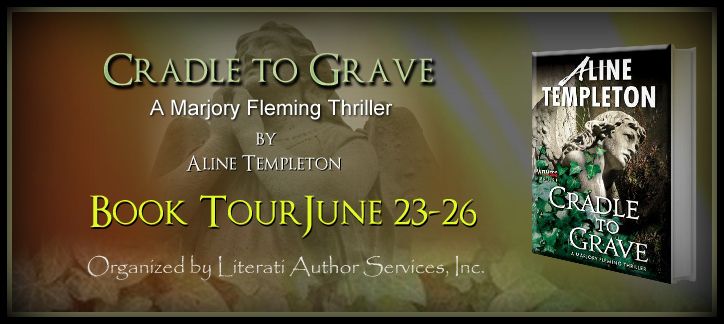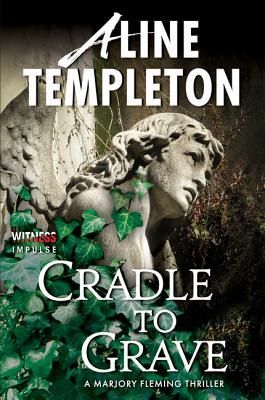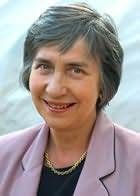Title: Cradle to Grave: A Marjory Fleming Thriller
Author: Aline Templeton
Genre: Mystery/Crime
Publication Date: May 20, 2014
Publisher: Witness Impulse, an imprint of HarperCollins
Event Organized By: Literati Author Services, Inc.
Synopsis
Who can you trust?
Accused of murdering the baby in her care, seemingly cold and measured nanny Lisa Stewart maintains her innocence. But when she changes her name and tries to flee, terrifying threats continue to follow her. Is she an innocent victim of public anger--or a calculating murderer on the run? Can Detective Marjory Fleming, dogged by her own past, uncover the truth?
This psychological thriller is perfect for fans of Tana French and Susan Hill.
Add to Goodreads
Purchase Links:
Amazon | Barnes & Noble
About the Author
Aline Templeton grew up in the fishing village of Anstruther, in the East Neuk of Fife. She has worked in education and broadcasting and was a Justice of the Peace for ten years. Married, with two grown-up children and three grandchildren, she now lives in a house with a view of Edinburgh Castle. When not writing, she enjoys cooking, choral singing, and traveling the back roads of France.
Interview with
Aline Templeton
Can you tell us
about yourself?
I grew up in
a fishing village on the east coast of Scotland. I read English at Cambridge
University and taught until my first child was born. I worked in radio and television and wrote articles
and stories for national newspapers and magazines until my first book was
published.
What do
you do when you are not writing?
I read, of
course. I love to cook and to travel and
I sing in two choirs.
When did you first
start writing and when did you finish your first book?
I have
written since I could hold a pencil. I
still have a copy of my first ‘novel’, written at the age of six, before I
could do joined-up writing – a slim
volume of sheets of notepaper folded over and stitched together with yellow
thread. It was the story of two
elf-persons called Mr. Wiz and Mrs Woz
who went off to Paris together for the weekend. (I know, I know – what about Mr. Woz and Mrs
Wiz, who probably just reckoned they were on a business trip?)
My first book
was published in 1984, Death is My Neighbor.
It was perhaps the typical first book and after it was published I
realized I needed to mature in my writing and spent some time working very hard
towards my next book, Last Act of All .
Where do you get
your ideas?
It’s always
hard to answer this question. Everything
I read, everything I hear, everything I experience, goes into the melting pot
and an idea for a plot comes out of that, often many years later. Going to visit Galloway, the area where my
books are set, often suggests a framework for a story.
Is there any particular author or
book that influenced you in any way either growing up or as an adult?
I think every author I’ve read and
admired has influenced me in some way, the Golden Age of crime writers
particularly. My father had a bookshelf
of green Penguins ( now in my own bookcase today) and I read my way straight
through them in my teens. My heroine has
always been PD James and having been privileged to get to know her I admire her
more than ever.
Is there a special ritual or
place that you write?
I have my own study looking on to the
garden and a beautiful Japanese maple tree, where the birds congregate round
the feeder. When I’m starting a new
book, or tackling a difficult scene, I have to start in longhand – I still feel
that gives me the most intimate connection with my characters.
You've
been given the task to host a last minute dinner party. Which authors are on your ultimate dinner
invitation list? Alive or Dead.
I
would have said Jane Austen but I think she’s probably been invited to so many
fantasy dinner parties that she might be quite cross and bored (one of the
things I love about her is that she was no saint.)
Dorothy
Parker (the gadfly every good dinner party needs), John Donne (who would be
romantic in the most cynical way), Elizabeth Jane Howard (who would immediately
fall in love with him), Rabbi Jonathan Sachs (for wisdom and wit), Dorothy
Sayers (who would enjoy herself robustly), Robert Browning (so that he could
write something wonderful afterwards) Queen Elizabeth II (who in private is
very amusing and an extremely good mimic), James Stewart (because someone has
to listen)
Questions about you series/book
Can you give us some insight into
DI Marjory Fleming?
When I was thinking about starting a
series, I knew what I didn’t want my
detective to be. I didn’t want her to be
a loner with a drink problem, a totally dysfunctional personal life, and an
aggressive attitude to her superiors and the rule of law. I’d been a lay justice for ten years and knew
a lot of women police officers and they seemed perfectly normal to me – just
working women with husbands, kids, elderly parents, doing a difficult,
demanding but very rewarding job.
I could see Marjory quite clearly: a
tall, athletic-looking woman (Big Marge to her officers) at breakfast-time
trying to get to work and her kids out to school. Just at that time I went to
do an event in Wigtown in Galloway, the Scottish Book Town. It ‘s farming country and it was at the time
of the dreadful foot-and-mouth epidemic when sheep and cattle were being
slaughtered, the fields were eerily empty and you could smell the smoke of
funeral pyres. I was thinking how hard
it would be to be a police officer in a community like this where the farmers
you were forcing to allow the killing squads on to their land were probably
people you knew, ha grown up with. It
came to me then that if that was hard, how much more difficult it would be if
you were also a farmer’s wife and your job pitted you against not only your
friends but your husband as well. So
Marjory became a farmer’s wife and that has been the background to her family
life.
What research did you have to do
in order write this police procedural mystery?
I have had a lot of legal experience
and contact with police officers though of course it’s important to keep up to
date with changes to the system. I’m
lucky enough to have a son who is a solicitor-advocate at the criminal bar so
he can always keep me straight.
I knew quite a lot about lifeboats
since there was a station in the village where I grew up but I went to various
stations and read Royal Lifeboat Institution publications for operational
detail – and was delighted to get a good review in their magazine. I also spent a lot of time studying tide
tables and sailing protocols.
What would DI Marjory Fleming
think of Aline Templeton?
She’d think I was a couch potato. She’s very active and doesn’t spend time
reading and hates time spent at her desk; she’d certainly be mystified by my
interest in cooking I think she’d reckon
we shared a sense of humor and would be pleased that I agree with her views on
Robert Burns rather than Tam MacNee’s (great poet, bad man) and that I
understand that criminal law is about proof not about abstract justice.
If
you could describe the DI Fleming series in 3 words what would they be?
Compelling,
character-driven, believable (All words
used in reviews)
Why
did you pick a small coastal town in Scotland as you setting?
Write
what you know – I write from the heart
about the sort of community I grew up in.

















0 comments:
Post a Comment